Hechima jiru, a traditional Japanese soup, offers a delightful blend of flavors and nutritional benefits. Dive into this article to explore the history, preparation methods, and unique qualities of hechima jiru, and discover why this simple yet nourishing soup has been cherished for generations.
What is Hechima jiru?
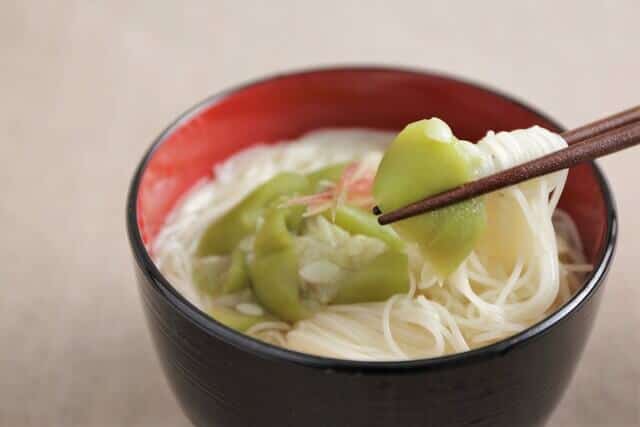
Hechima jiru, also known as “Luffa soup,” is a traditional Japanese soup of Kagoshima Prefecture, where miso soup with a loofah and served in a bowl containing somen noodles. Locals typically prepare the soup by simmering sliced luffa with miso paste, tofu, and sometimes pork or other vegetables. The luffa has a mild, slightly sweet flavor and a soft texture that absorbs the savory broth well. Hechima jiru is appreciated for its light, refreshing taste and often enjoyed during the summer months.
Hechima jiru History
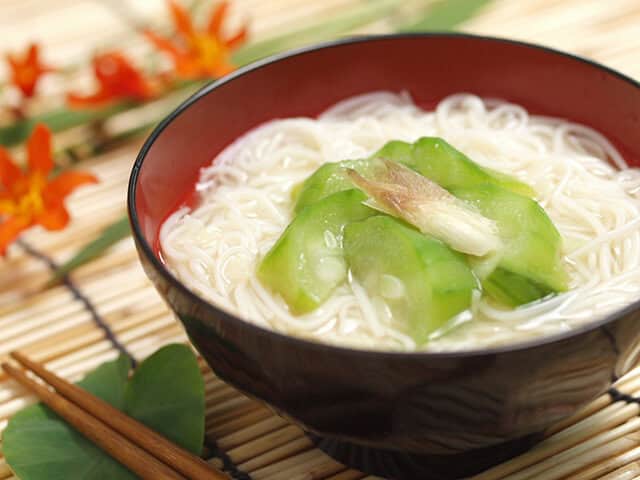
In Kagoshima Prefecture, unlike other regions where loofahs are used as scrubbing brushes or in lotions, people in Kagoshima have been eating loofahs since ancient times. An 1802 encyclopedia called “Seikatsu Zusetsu,” commissioned by Shimazu Shigehide, even describes loofah dishes.
Loofahs are plants native to tropical Asia, and they thrive in hot, humid environments. This makes them perfect for cultivation in Okinawa Prefecture and southern Kyushu in Japan. Loofahs are also known as “itouri” (thread melon) due to their high fiber content. For food, they grow varieties with low fiber development. If loofahs grow too large, the fiber becomes hard, so they harvest young fruits less than 20 cm in length. In Kagoshima Prefecture, they typically use loofah in summer dishes. While “Luffa soup” is a popular example, they also often include loofahs in stir-fries and other dishes.
Hechima jiru FAQ
- What nutrients does loofah contain?
-
Loofah is rich in potassium, which helps prevent swelling and high blood pressure, as well as vitamin B6 and folic acid, which are effective in preventing anemia, making it especially beneficial for pregnant women. Additionally, it contains water and dietary fiber, aiding in the prevention of obesity.
- How should you store Loofah?
-
To store loofah, keep it in the refrigerator’s vegetable compartment, where it will stay fresh for up to a week. While the skin may turn black when touched or rubbed, this doesn’t affect the taste; simply peel off the skin before eating if necessary.
Hechima jiru Recipe
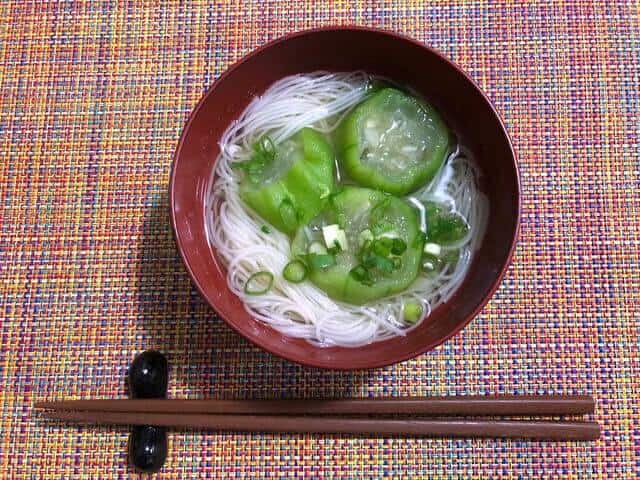
Hechima jiru Ingredients
| Ingredients for 4 persons | Measurements |
|---|---|
| Loofah | 100g |
| Somen noodles | 30g |
| Dried sardines | 30g |
| Miso | 60g |
| Water | 800g |
| Myoga (optional) | 20g |
How to make Hechima jiru?
Add the dried sardines to the water and let them soak for about 30 minutes. After soaking, heat the mixture on the stove, bring it to a boil, and simmer for about 3 minutes. Dissolve the miso into the simmering broth. You can choose to remove the dried sardines or leave them in for extra flavor.
Peel the loofah and cut it into large bite-sized pieces. Add the loofah pieces to the miso soup and simmer until they become thick and tender.
Boil the somen noodles separately according to the package instructions. Once cooked, place the somen noodles in a soup bowl.
Pour the miso soup with loofah over the cooked somen noodles in the soup bowl. If desired, garnish with shredded myoga ginger for added flavor.
Hechima jiru Recommended Restaurants
Mikado (お食事処みかど)
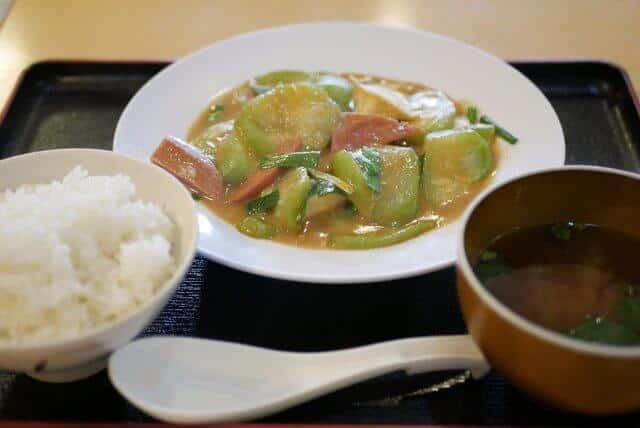
Mikado’s “Luffa Miso Simmered in Miso,” is a dish made with thinly sliced loofah, spam, tofu, and Chinese chives, all wrapped up in miso with a strong dashi flavor. The miso is a little on the rich side, so the loofah turns into a hearty side dish. This goes well with rice, of course.
Takeaway
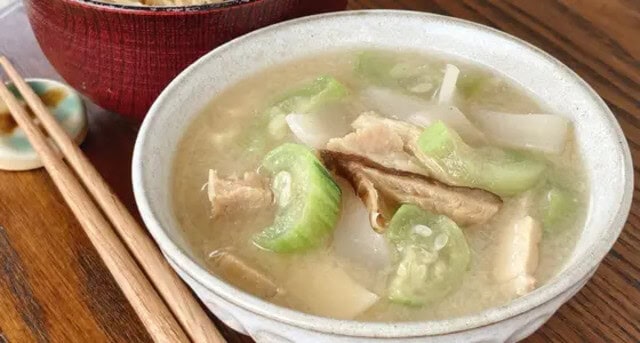
We hope this article has given you a deeper appreciation for hechima jiru and inspired you to try making it at home. Embrace this delightful soup and enjoy its many benefits, both for your palate and your well-being.
You can check some Japanese soup dishes that we know you would like to try too.
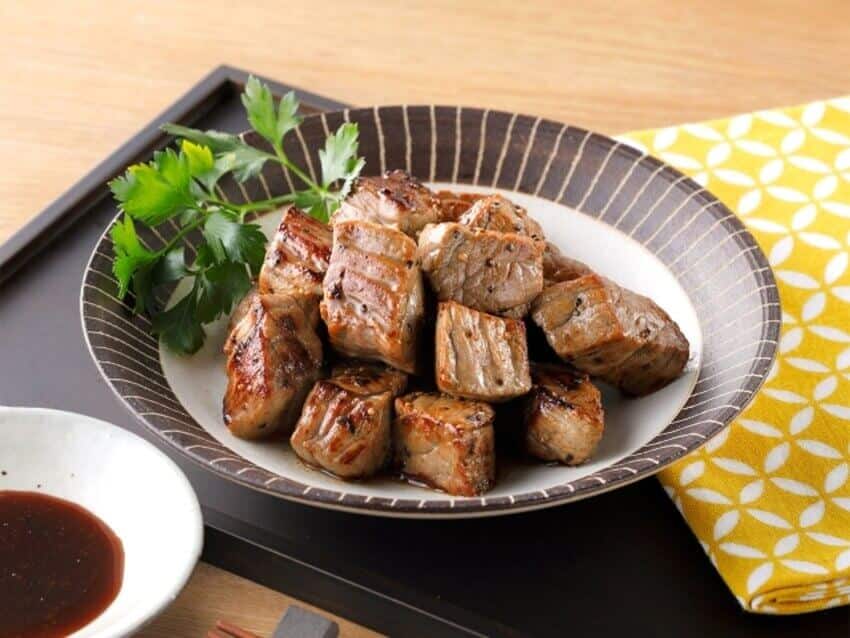
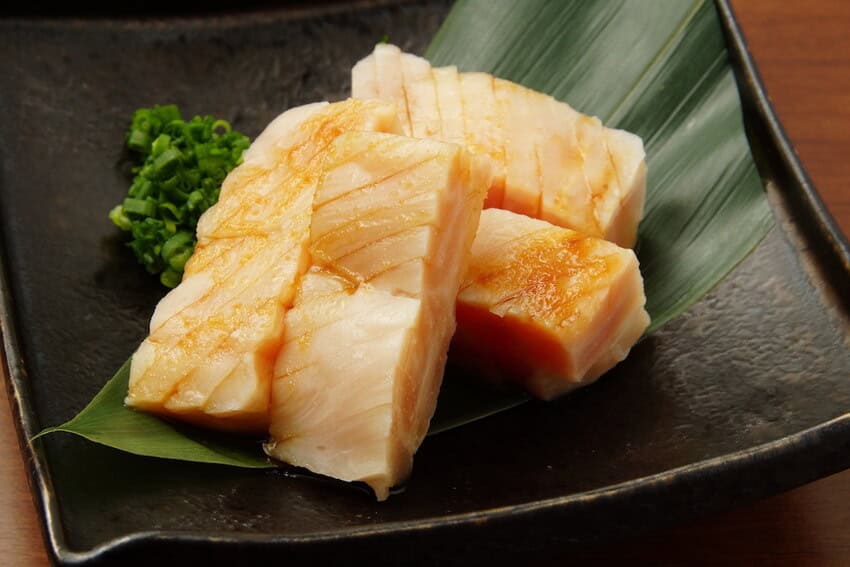
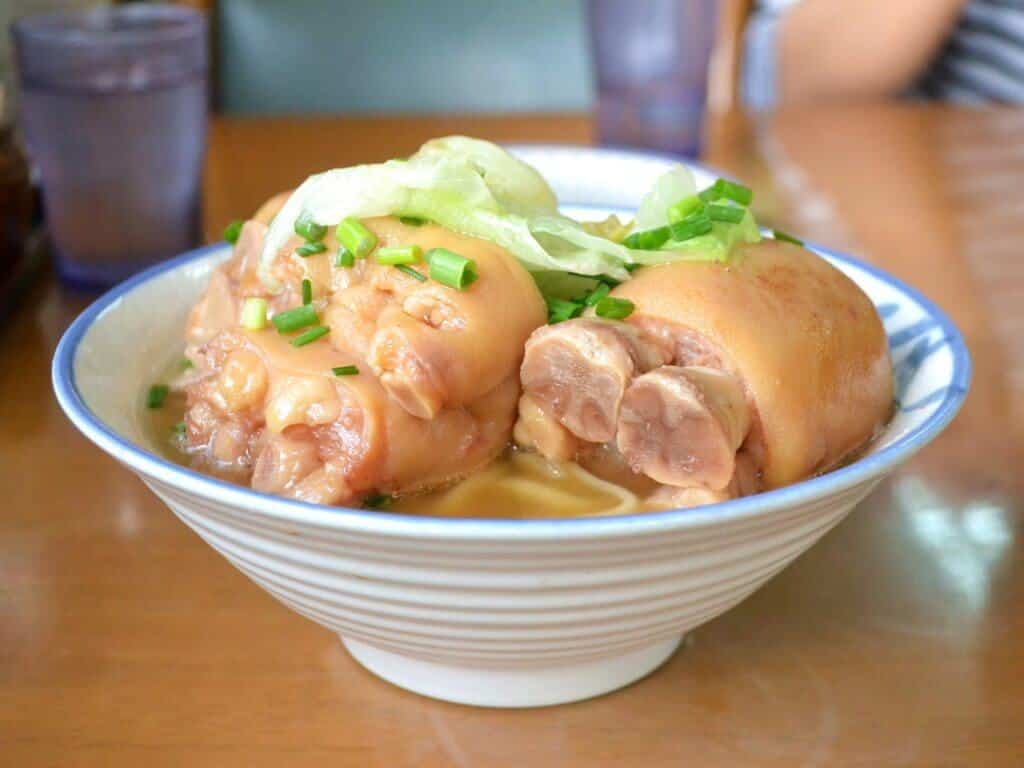

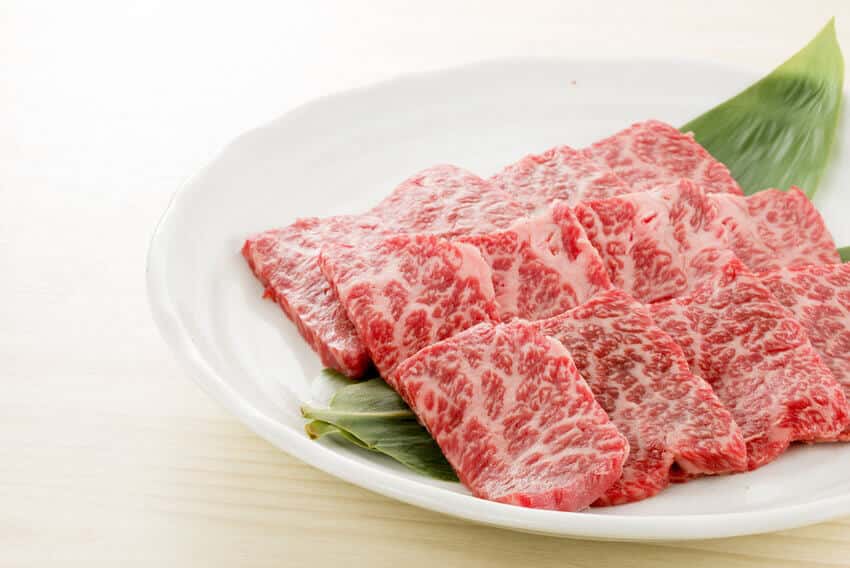

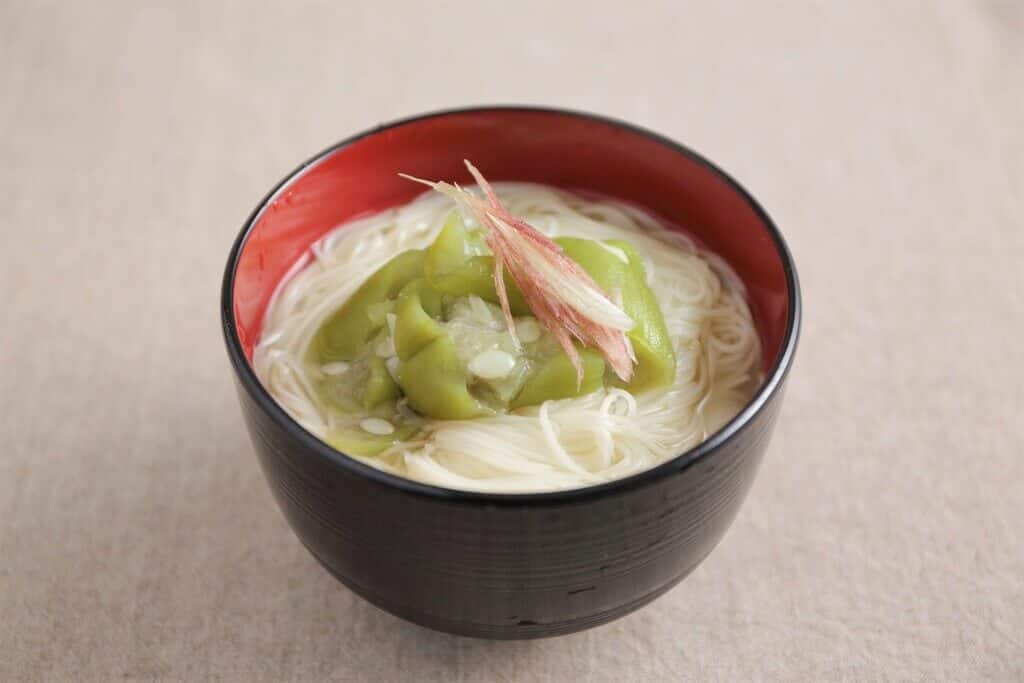
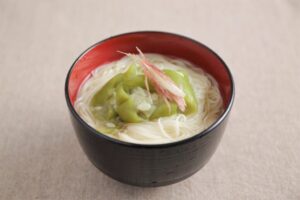
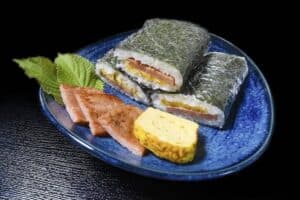
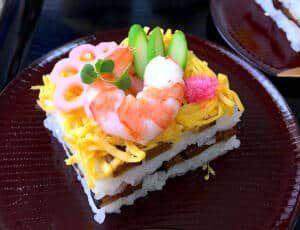
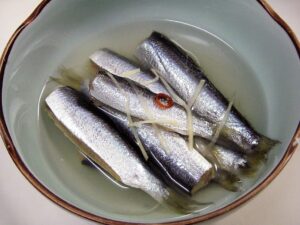
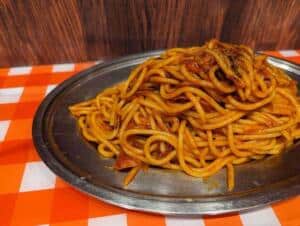

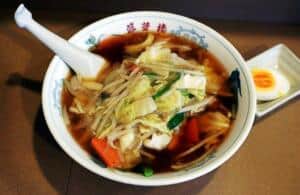

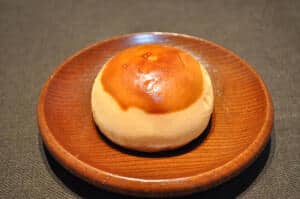
Comments